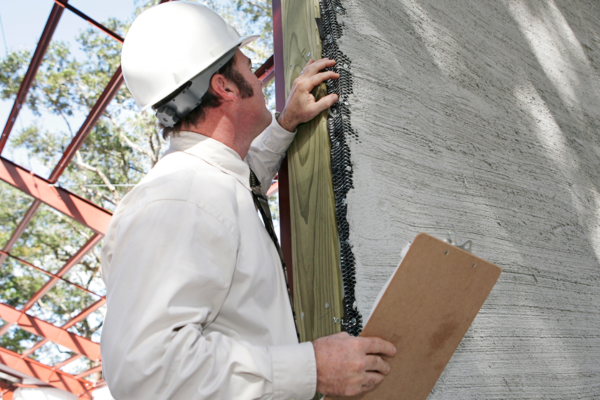Builders Negligence and the Design and Building Practitioners Act
In NSW, the Design and Building Practitioners Act 2020 (NSW) (the “DBP Act”) imposes a duty on a builder to exercise reasonable care to avoid economic loss caused by defects in buildings on which works are carried out and in construction works.
When the legislation was introduced, it was given retrospective application and builders faced claims where they had breached this duty in respect of work that had been performed up to ten years before the legislation began.
The liability insurers of builders were confronted by claims against builders that were not contemplated when they issued insurance policies many years ago and, with most liability insurance policies, the entitlement to make a claim under the policy arises when the act or omission that causes the damage occurs.
Negligence claims against builders, owners and developers with defects in their buildings have sought to test the limits of the duty under section 37 of the DBP Act.
Actions have been brought by owners and developers against builders, directors of construction companies and employees involved in works, seeking damages for losses caused by defects in buildings caused by breaches of the statutory duty to take reasonable care.
Claims have also been pursued in respect of buildings where it was believed, by builders, the claim would fall outside the categories of buildings covered by the statutory duty. The building works to which this duty applies is not limited to residential building works as some had thought.
The end result has been confirmation that the duty extends to an extremely wide category of buildings and that builders, directors of companies and any person including an employee who carries out building works will be liable for a breach of section 37 of the DBP Act.
Importantly, the statutory duty of care is owed by every person who carries out construction work, which includes building work, the preparation of designs, supply of building products and supervising, coordinating, project managing or otherwise having substantive control over carrying out of construction work.
Section 37 of the DBP Act reads as follows:
- A person who carries out construction work has a duty to exercise reasonable care to avoid economic loss caused by defects
(a) in or related to a building for which the work is done, and
(b) arising from the construction work.
Definitions are found in section 36 of the DBP Act which are as follows:
“building work” includes residential building work within the meaning of the Home Building
Act 1989
“building” has the same meaning as it has in the Environmental Planning and Assessmen
Act 1979.
“construction work” means any of the following:
(a) building work
Further, section 4 of the DBP Act reads:
Building work
- For the purposes of this Act, building work means work involved in, or involved in coordinating or supervising work involved in, one or more of the following:
(d) the construction of a building of a class or type prescribed by the regulations for the purposes of this definition…
Also, Regulations made under the DBP Act prescribe classes of buildings to which section 4
applies and Clause 12 of the regulations provides as follows:
– Prescribed classes or types of building—building work
– For the purposes of section 4(1) of the Act, definition of building work, a building is prescribed if the building, or a part of the building, is a class 2 building.
The mental gymnastics to get to the intention of the legislation is not without challenges.
However, the cases that have been run and been decided by the Courts are providing real clarity on what the duty means to all of those involved in the building industry and the decision of the NSW Court of Appeal in Roberts v Goodwin Street Developments Pty Ltd is illustrative of the extent of the duty.
Goodwin Street Developments Pty Ltd (“Goodwin”) entered into a building contract with DSD Builders Pty Ltd (“DSD”) to construct three boarding houses for student accommodation at the University of Newcastle. Mr Roberts was the sole director of Goodwin. Mr Roberts introduced himself as the builder and attended all site meetings for the project.
Disputes between Goodwin and DSD arose during the project over defective works, general delays, the suspension of works and late payments. During a suspension of work, Mr Roberts caused malicious damage to the buildings, and removed materials, fixtures and fittings.
Goodwin terminated the building contract and commenced proceedings in the Supreme Court against DSD to recoup its financial loss and later joined Mr Roberts, alleging Mr Roberts breached his duty of care under the DBP Act as well as alleging other claims relating to trespass. DSD went into liquidation before the outcome of the proceedings.
Mr Roberts argued that the statutory duty imposed by section 37 is effectively displaced in the case of a boarding house because a boarding house is not a “dwelling” for the purposes of the Home Building Act and “building work” is defined in section 36(1) as including “residential building work” within the meaning of the Home Building Act.
That argument was swiftly rejected. The Court of Appeal held “The definition in s 36(1) of ‘building work’ is not an exhaustive definition…” and “…the reference to ‘residential building work’ within the meaning of the Home Building Act simply makes clear that such work constitutes ‘building work’ for the purposes of s 36(1).” The Court adopted an expansive interpretation of the definition of “building” when looking at the work that section 37 applied to.
The result from Goodwin’s case is that the section 37 duty applies to all building work, residential and commercial, so long as it relates to the construction of a “building” as defined in the Environmental Planning and Assessment Act 1979 (NSW).
The case also confirmed the duty applied to Mr Roberts as he was a person who carried out construction work.
The duty of care will apply to directors of construction companies if they are in a position to control how construction work is carried out, regardless of whether they are actively engaged in the works.
Section 37 of the DBP Act is a significant weapon in the arsenal of claims available to owners of residential and commercial buildings that suffer financial loss from defects in their buildings.
Construction companies, and their directors and employees can be held liable for the financial loss caused by defects in the work that they carry out.


